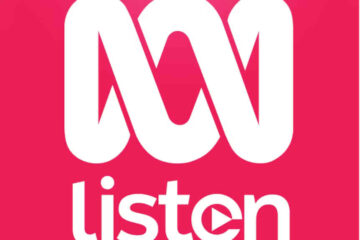Palestinian President Mahmoud Abbas stated that Israel and Hamas, are engaged in direct contact. Ghazi Hamad, the go-between who, on behalf of Hamas, oversaw at the time the negotiations for the release of Shalit, working with Gershon Baskin. According to a Palestinian source, “When President Abbas says there are contacts, this is based on vetted information that we have gathered and cross-referenced”.
A Fatah official has confirmed claims by Palestinian President Mahmoud Abbas about Israel and Hamas holding direct talks, claiming that the two sides are engaged in security cooperation.
In an interview on Egyptian television Nov. 29, Palestinian President Mahmoud Abbas had a surprise: Israel and Hamas, he related, were engaged in direct contact. When asked for additional details about this astounding revelation, Abbas would only say that the parties were talking directly with each other, and have even reached certain understandings.
Hamas immediately denied the claim. Senior Gaza-based Hamas official Ismail Radwan flatly rejected the assertion, alleging that the president of the Palestinian Authority was spreading false propaganda.
Another senior member of the organization, Mousa Abu Marzouk, quickly posted on his Facebook page: “Negotiating with Israel, especially having direct contact with it, stands in total contradiction of the movement’s ideology, principles and convention.”
Ismail Haniyeh, deputy chief of Hamas’ political bureau, has been very careful in recent speeches to note that the organization will not recognize Israel. His words to that effect were even set to music, becoming a smash hit in Gaza.
Contacts between Israel and Hamas have been reported in the past. The movement’s leaders stressed that they were conducting its affairs indirectly through intermediaries and that they would never meet face-to-face with the “Zionist enemy.” This is how the negotiations for the release of kidnapped Israeli soldier Gilad Shalit were conducted, as were the negotiations for the various cease-fires in the Gaza Strip. Now Abbas has revealed that Hamas and Israel have ratcheted up their negotiations.
This isn’t the first time that the Palestinian Authority president has divulged intelligence information from his security apparatus in the West Bank. In October 2007, four months after the coup Hamas staged in Gaza, Abbas told the Al Arabiya news network that Hamas and Israeli representatives had met at the Erez crossing to discuss lifting or easing the siege on the Gaza Strip.
That report was emphatically denied by Hamas. Years later, however, senior Fatah members told me that Ghazi Hamad, then the spokesman for Prime Minister Haniyeh, and Ahmed Yousef, then Haniyeh’s diplomatic adviser, met with representatives from the Israel Defense Forces (IDF) District Coordination Offices to discuss easing the blockade on the Gaza Strip. Hamad at one point denied this to me.
In January 2008, Abbas once again unveiled a communication channel between Israel and Hamas. In an address commemorating the 43rd year of the establishment of the Fatah movement, the Palestinian Authority president recounted that the Swiss president had informed him that before the coup in the Gaza Strip, Hamas held negotiations with Israeli officials about a Palestinian state within temporary borders. According to him, the negotiations were conducted to produce something called the “Swiss Document.” The day after Abbas’ address, senior Hamas official Mahmoud al-Zahar admitted that such a document existed. However, speaking in the movement’s defense, he argued that it contained ideas entertained by the Swiss and submitted solely for Haniyeh’s review.
Now let’s move on to the present day. Abbas’ disclosure in Egypt about the contacts between Israel and Hamas was surprising in that they are taking place in the aftermath of Operation Protective Edge, which exacted a human toll from both sides last summer.
Speaking on condition of anonymity, a high-ranking Palestinian official confirmed this information to Al-Monitor during a phone conversation. “The vast information that we have proves that there are direct contacts, which might even be billed as negotiations between Hamas and Israel. This also pertains to understandings about arrangements along the Gaza-Israeli border as well as to contacts about a variety of other topics. We know that Dr. Ghazi Hamad is involved in those contacts with the Israelis, as are other senior Hamas leaders in the Gaza Strip.”
Hamad, it should be noted, was the go-between who, on behalf of Hamas, oversaw at the time the negotiations for the release of Shalit, working with Gershon Baskin from the Israeli side. According to the Palestinian source, “When President Abbas says there are contacts, this is based on vetted information that we have gathered and cross-referenced. We have solid information about communication between the IDF and the [Israeli] government — or the Israeli diplomatic echelon — and Hamas in terms of security matters that have to do with keeping the cease-fire. Let me give you an example: A mortar shell was fired [Dec. 8]. It landed somewhere in the vicinity of the border. Coordinating, both sides set out to look for what was left of the shell and to apprehend the shooters.”
He spoke of bona fide security coordination between Israel and Hamas, saying “Without a doubt, there’s coordination. I can’t disclose everything we know or all the information that we have, but I have many more examples to this effect that at this time remain confidential.” When asked whether there are contacts between Prime Minister Benjamin Netanyahu and Haniyeh, the official replied, “I can neither confirm nor deny this. All our indications and testimonies show that there’s security coordination or that other topics are being addressed. We can also understand that past coordination with the movement’s leaders enabled [Hamas political bureau chief] Khaled Meshaal to enter Gaza and more recently enabled Mousa Abu Marzouk to enter Rafah. This was all done in coordination with Israel. It should also be remembered that in no way is Egypt assisting Hamas at this time.”
Other senior Palestinian Authority officials with whom I talked over the past week also argue that the recent hospitalization of Haniyeh’s daughter and Abu Marzouk’s sister in Tel Aviv was made possible in the setting of these open and direct channels of communication between Hamas and Israel and thanks to the coordination between them.
What has prompted the Palestinian president to divulge this information? It can be assumed that Abbas would like to humiliate senior Hamas members who attack the Fatah movement for its negotiations with Israel, coming out with declarations about an uncompromising armed struggle against Israel. Additionally, this statement was made against the backdrop of the very strained relations between the leaderships of Fatah and Hamas, which jeopardize the Palestinian Authority’s national unity government. Hamas demands that Abbas declare new elections, and his response is to expose their ties with Israel.
Originally Published at: http://goo.gl/0pL3y8


